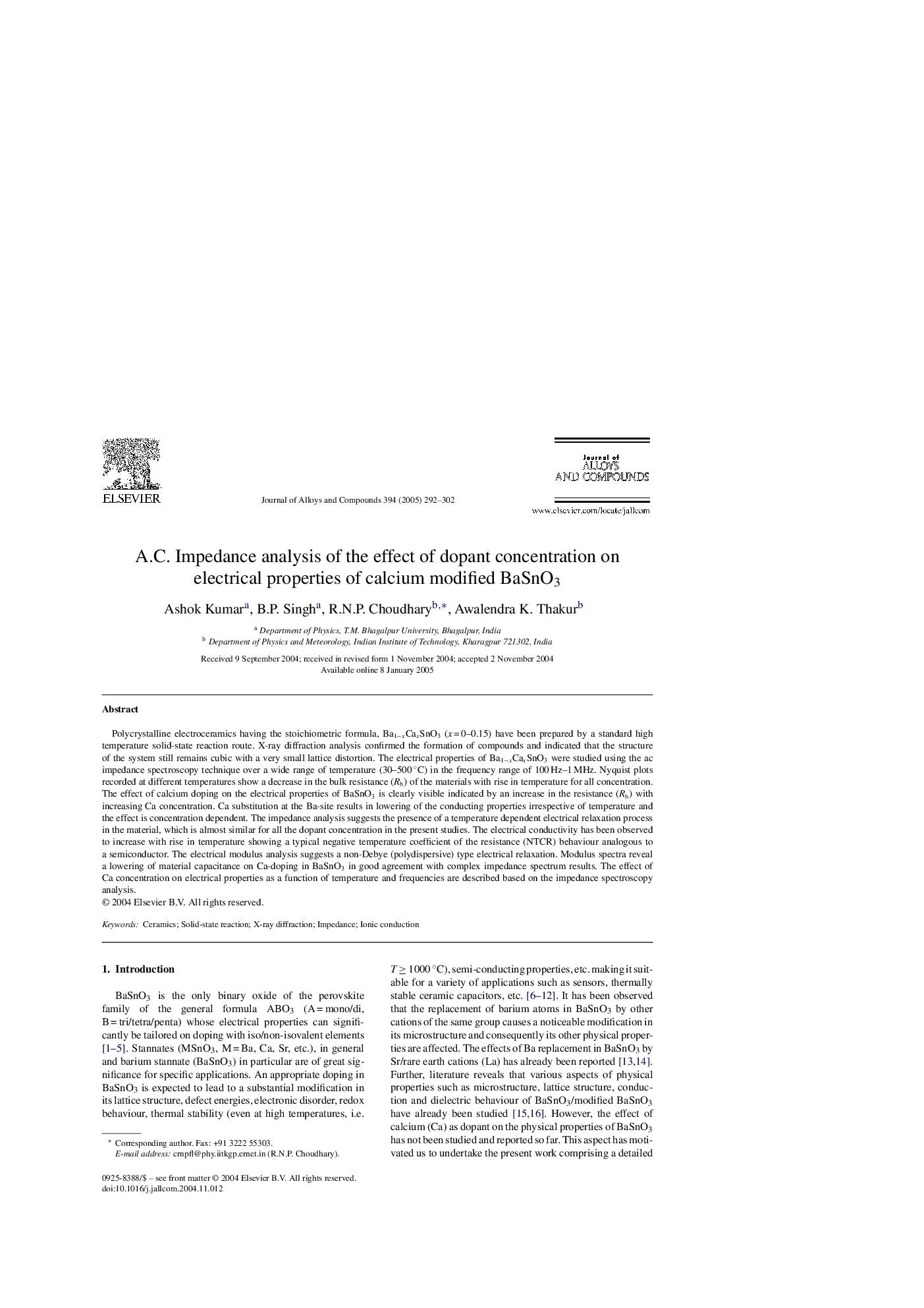| Article ID | Journal | Published Year | Pages | File Type |
|---|---|---|---|---|
| 9803827 | Journal of Alloys and Compounds | 2005 | 11 Pages |
Abstract
Polycrystalline electroceramics having the stoichiometric formula, Ba1âxCaxSnO3 (x = 0-0.15) have been prepared by a standard high temperature solid-state reaction route. X-ray diffraction analysis confirmed the formation of compounds and indicated that the structure of the system still remains cubic with a very small lattice distortion. The electrical properties of Ba1âxCaxSnO3 were studied using the ac impedance spectroscopy technique over a wide range of temperature (30-500 °C) in the frequency range of 100 Hz-1 MHz. Nyquist plots recorded at different temperatures show a decrease in the bulk resistance (Rb) of the materials with rise in temperature for all concentration. The effect of calcium doping on the electrical properties of BaSnO3 is clearly visible indicated by an increase in the resistance (Rb) with increasing Ca concentration. Ca substitution at the Ba-site results in lowering of the conducting properties irrespective of temperature and the effect is concentration dependent. The impedance analysis suggests the presence of a temperature dependent electrical relaxation process in the material, which is almost similar for all the dopant concentration in the present studies. The electrical conductivity has been observed to increase with rise in temperature showing a typical negative temperature coefficient of the resistance (NTCR) behaviour analogous to a semiconductor. The electrical modulus analysis suggests a non-Debye (polydispersive) type electrical relaxation. Modulus spectra reveal a lowering of material capacitance on Ca-doping in BaSnO3 in good agreement with complex impedance spectrum results. The effect of Ca concentration on electrical properties as a function of temperature and frequencies are described based on the impedance spectroscopy analysis.
Related Topics
Physical Sciences and Engineering
Materials Science
Metals and Alloys
Authors
Ashok Kumar, B.P. Singh, R.N.P. Choudhary, Awalendra K. Thakur,
